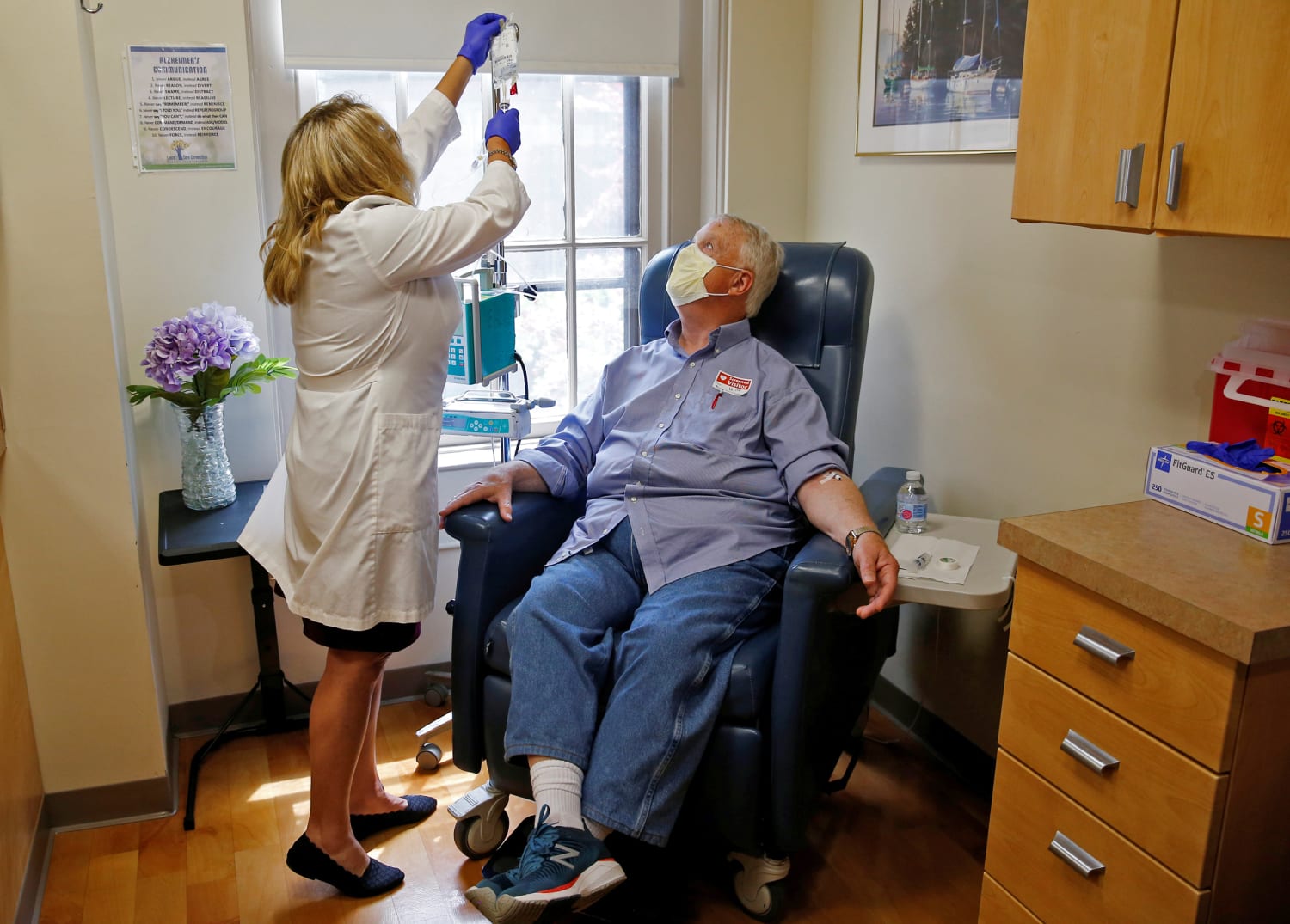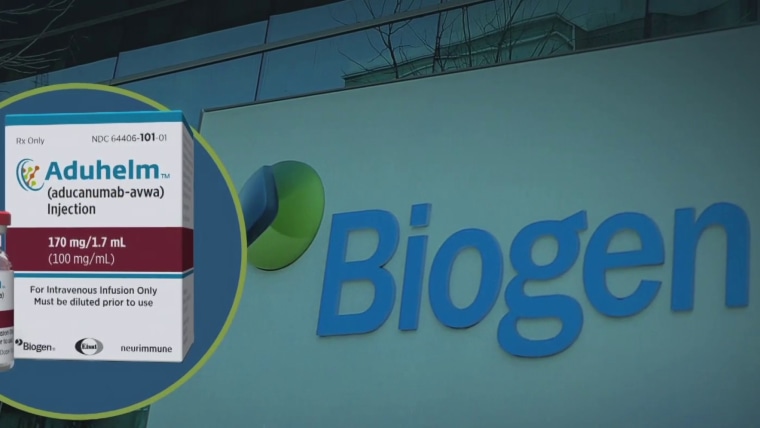Medicare plans to provide insurance coverage for Aduhelm, a contentious Alzheimer’s treatment from the drugmaker Biogen, the Centers for Medicare & Medicaid Services announced Tuesday.
The drug, which is intended for Alzheimer’s patients in the early stages of the disease, will be limited to Medicare recipients who are willing to enroll in qualifying clinical trials, the CMS said.
The drug is the first treatment approved in the U.S. to slow cognitive decline in people living with Alzheimer’s, but some doctors have refused to prescribe it because of mixed data supporting Biogen’s application to the Food and Drug Administration. The FDA approved the drug last June under an accelerated pathway, but asked the company to continue to study it to confirm its benefits or risk withdrawal of the therapy.
The CMS struck a cautious tone during a press call Tuesday. “While there are may be a potential for promise with this treatment, there’s also the potential for serious harm,” CMS Chief Medical Officer Lee Fleisher said on the call.
The CMS’s ruling on insurance coverage is preliminary. The agency’s decision will be followed by a 30-day public comment period, where members of the public can submit feedback to CMS. A final decision is expected in April.
Juliette Cubanski, deputy director of the program on Medicare policy at the Kaiser Family Foundation, said that the decision to restrict access of the drug to only trial patients “seems like a reasonable place for Medicare to have arrived at.”
She noted that the FDA approved the drug under an accelerated pathway, which requires the company to conduct additional studies to prove clinical benefits.
“CMS says there is kind of insufficient evidence to suggest that this drug, and other drugs like it, are reasonable and necessary,” she said.
Still, Tuesday’s ruling is expected to have large implications for Medicare and how the drug is prescribed going forward.
More than 6 million Americans are currentlyliving with Alzheimer’s, a progressive disease that affects memory, reasoning and behavior, according to the Alzheimer’s Association. The vast majority of Americans with the disease are old enough to receive Medicare.
All other drugs approved by the FDA for Alzheimer’s are aimed at helping symptoms, not actually slowing the progression of the disease, which is the sixth-leading cause of death in the United States, according to the Centers for Disease Control and Prevention.
Biogen’s drug, a monoclonal antibody, is given as an infusion every four weeks. It targets a “sticky” compound in the brain known as beta-amyloid, which some scientists believe plays a role in the disease. It’s unclear, however, whether reducing levels of beta-amyloid has any effect on progression of the disease, experts say.
The treatment is expected to cost Medicare billions of dollars a year, and has substantially raised premiums for Medicare beneficiaries.
Due to the drug’s high price and potential demand for the treatment, CMS announced in November that it would increase monthly premiums by 15 percent for Medicare Part B beneficiaries, from $148.50 in 2021 to $170.10 in 2022, the agency’s largest price increase in the program’s history. But on Monday, Xavier Becerra, the secretary for the Department of Health and Human Secretary, asked the agency to reassess its premium hike after Biogen slashed the price of its drug in half.
The proposal could change substantially before it’s finalized in April, but beneficiaries would be expected to be responsible for 20 percent co-payment for the treatment, which carries a list price of $28,200, Cubanski, of Kaiser Family Foundation, said.
The lower out-of-pocket cost from Medicare coverage may also persuade some unwilling doctors, whose patients may have to pay the full price of the drug, to prescribe the treatment.
Still, previous statements and confusing data by the company are likely to sway doctors who are still skeptical about recommending the drug, despite the Medicare coverage.
In 2019, Biogen halted two studies of the drug after an analysis revealed it was unlikely to work. The company reversed course several months later by announcing that a new analysis showed the drug was effective at a higher dose and that it would seek regulatory approval for the drug after all.
When the agency did clear the drug last June, it was a departure from the advice of its independent panel of outside experts, who concluded that there wasn’t enough evidence that the drug slowed the disease. At least three members of the panel have resigned in protest following the agency’s approval.
The drug’s side effects include brain swelling and bleeding.
In July, acting FDA Commissioner Dr. Janet Woodcock called for a government investigation into contacts between some of her agency’s drug reviewers and Biogen.
Follow NBC HEALTH on Twitter & Facebook.
Source: | This article originally belongs to Nbcnews.com











